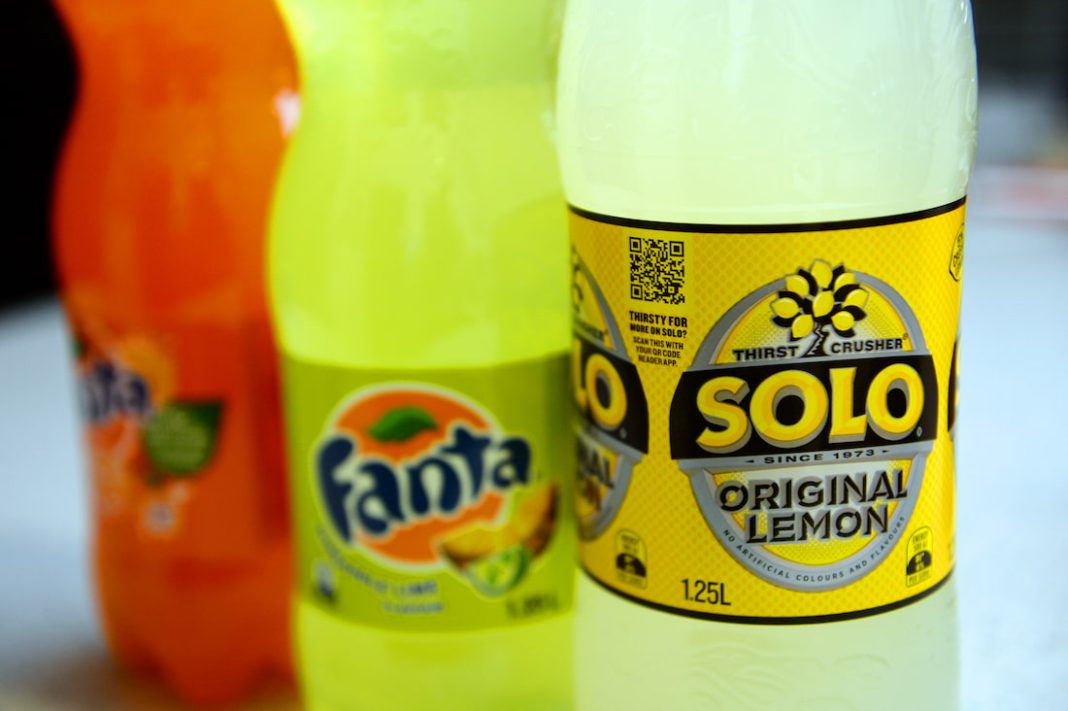Sugary drinks cause weight gain and increase the risk of a range of diseases, including diabetes.
The evidence shows that well-designed taxes can reduce sugary drink sales, cause people to choose healthier options and get manufacturers to reduce the sugar in their drinks. And although these taxes haven’t been around long, there are already signs that they are making people healthier.
It’s time for Australia to catch up to the rest of the world and introduce a tax on sugary drinks. As our new Grattan Institute report shows, doing so could mean the average Australian drinks almost 700 grams less sugar each year.
Sugary drinks are making us sick
The share of adults in Australia who are obese has tripled since 1980, from 10% to more than 30%, and diabetes is our fastest-growing chronic condition. The costs for the health system and economy are measured in the billions of dollars each year. But the biggest costs are borne by individuals and their families in the form of illness, suffering and early death.
Sugary drinks are a big part of the problem. The more of them we drink, the greater our risk of gaining weight, developing type 2 diabetes, and suffering poor oral health.
These drinks have no real nutrients, but they do have a lot of sugar. The average Australian consumes 1.3 times the maximum recommended amount of sugar each day. Sugary drinks are responsible for more than one-quarter of our daily sugar intake, more than any other major type of food.
You might be shocked by how much sugar you’re drinking. Many 375ml cans of soft drink contain eight to 12 teaspoons of sugar, nearly the entire daily recommended limit for an adult. Many 600ml bottles blow our entire daily sugar budget, and then some.
The picture is even worse for disadvantaged Australians, who are more likely to have diabetes and obesity, and who also consume the most sugary drinks.
Sugary drink taxes work
Fortunately, there’s a proven way to reduce the damage sugary drinks cause.
More than 100 countries have a sugary drinks tax, covering most of the world’s population. Research shows these taxes lead to higher prices and fewer purchases.
Some taxes are specifically designed to encourage manufacturers to change their recipes and cut the sugar in their drinks. Under these “tiered taxes”, there is no tax on drinks with a small amount of sugar, but the tax steps up two or three times as the amount of sugar rises. That gives manufacturers a strong incentive to add less sugar, so they reduce their exposure to the tax or avoid paying it altogether.
This is the best result from a sugary drinks tax. It means drinks get healthier, while the tax is kept to a minimum.
In countries with tiered taxes, manufacturers have slashed the sugar in their drinks. In the United Kingdom, the share of products above the tax threshold decreased dramatically. In 2015, more than half (52%) of products in the UK were above the tax threshold of 5 grams of sugar per 100ml. Four years later, when the tax was in place, that share had plunged to 15%. The number of products with the most sugar – more than 8 grams per 100ml – declined the most, falling from 38% to just 7%.
The Australian drinks market today looks similar to the UK’s before the tax was introduced.
Health benefits take longer to appear, but there are already promising signs that the taxes are working. Obesity among primary school-age girls has fallen in the UK and Mexico.
Oral health has also improved, with studies reporting fewer children going to hospital to get their teeth removed in the UK, and reduced dental decay in Mexico and Philadelphia.
One study from the United States found big reductions in gestational diabetes in cities with a sugary drinks tax.
The tax Australia should introduce
Like successful taxes overseas, Australia should introduce a sugary drink tax that targets drinks with the most sugar:
- drinks with 8 grams or more of sugar per 100ml should face a $0.60 per litre tax
- drinks with 5–8 grams should be taxed at $0.40 per litre
- drinks with less than 5 grams of sugar should be tax-free.
This means a 250ml Coke, which has nearly 11 grams of sugar per 100ml, would cost $0.15 more. But of course consumers could avoid the tax by choosing a sugar-free soft drink, or a bottle of water.
Grattan Institute modelling shows that under this tiered tax, Australians would drink about 275 million litres fewer sugary drinks each year, or the volume of 110 Olympic swimming pools.
The tax is about health, but government budgets also benefit. If it was introduced today, it would raise about half a billion dollars in the first year.
Vested interests such as the beverages industry have fiercely resisted sugary drink taxes around the world, issuing disingenuous warnings about the risks to poor people, the sugar industry and drinks manufacturers.
But our new report shows sugary drink taxes have been introduced smoothly overseas, and none of these concerns should hold Australia back.
We certainly can’t rely on industry pledges to voluntarily reduce sugar. They have been weak and misleading, and failed to stick.
It will take many policies and interventions to turn back the tide of obesity and chronic disease in Australia, but a sugary drinks tax should be part of the solution. It’s a policy that works, it’s easy to implement, and most Australians support it.
The federal government should show it’s serious about tackling Australia’s biggest health problems and take this small step towards a healthier future.
Peter Breadon, Program Director, Health and Aged Care, Grattan Institute and Jessica Geraghty, Senior Associate, Grattan Institute
This article is republished from The Conversation under a Creative Commons license. Read the original article.



